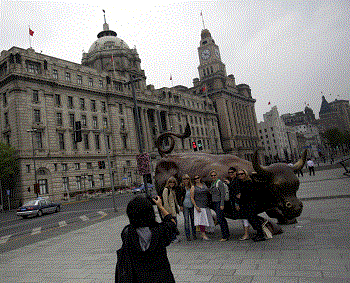While upscale retailers have scored win after win with Chinese consumers, in one of the country’s most fabled financial centres, luxury brands are acknowledging a major fail.
Left derelict before China’s economic reforms took hold, Shanghai’s Bund district struggled during the 80s and 90s, with the building that now houses the Waldorf Astoria Hotel being used for many years as a KFC outlet.
Fortunately the Bund, which was the city’s original commercial district in the nineteenth century, experienced a rebirth over the last decade, and its historic bank buildings became home to fashionable boutiques for such brands as Cartier, Zegna, Boucheron, Patek Philippe, Giorgio Armani and many others.
However, unlike the experience in most of China’s high end malls, the historic downtown shopping experience on Shanghai’s Bund has failed to provide retailers with the profits necessary to keep their shops open. The Armani store at Three on the Bund closed earlier this year, and was preceded by the shuttering of Dolce & Gabbana, Patek Philippe, Boucheron and Hugo Boss.
The challenge of making downtown retail work, even in an area with the enormous tourist pull of the Bund, shows the hazards that await both retailers and retail real estate developers in China.
While most of the retail development in the Bund has been relatively inexpensive remodeling of the original buildings, investors such as the US’ Rockefeller Group Development Corporation have much more ambitious ventures aimed at developing commercial real estate in the Bund area.
The Hongkong and Shanghai hotel group also made a multi-million dollar investment in the Peninsula Hotel along the Bund, which includes a substantial shopping arcade.
Rockefeller Group’s RockBund project is a 94,000 square meter urban mixed-use redevelopment combining the restoration of 11 historical buildings with the construction of commercial space as part of a city-led redevelopment project called Waitanyuan (Bund Park).
However, if luxury retailers cannot survive in this environment, then the prospects for developers such as Rockefeller Group to recoup their investments may be further away than originally planned. While the potential for fried chicken sales along the Bund has already been proven, that’s not likely to have been the target consumers that the developers had in mind when making their financial projections.

Leave a Reply